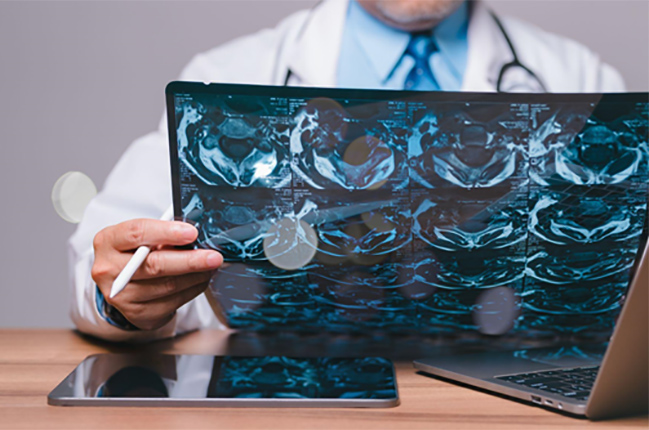
Brain injuries can be life-altering, but they may sometimes go undiagnosed due to their invisible nature. Identifying the full extent of the brain damage is crucial for proper treatment. Here’s how advanced neurological testing offers objective confirmation of brain injuries, helping patients receive the care they need for optimal recovery.
The Role of Neurological Testing in Diagnosing Brain Injuries
Traditional evaluations often rely on symptom reporting, which can be subjective and incomplete. Neurological testing, however, provides clear, scientific evidence of both visible and subtle brain damage. These tests help specialists determine the severity of the injury and tailor a personalized treatment plan for each patient:
MRI: Detecting Structural Damage
Magnetic resonance imaging (MRI) is one of the most widely used tools for the initial assessment of traumatic brain injuries (TBI). MRI scans provide high-resolution brain images, revealing structural damage such as bleeding, swelling, or tissue loss. However, in mild TBIs, MRIs are primarily normal and provide little information. They are, however, ordered to ensure that life-threatening pathology is promptly excluded.
qEEG: Mapping Brain Function
Quantitative Electroencephalography (qEEG) offers a deeper look into brain function. Unlike standard EEGs, qEEG analyzes brain wave patterns to detect abnormalities that indicate cognitive dysfunction or neurological impairment. This test is particularly useful for identifying brain injuries that may not be visible on an MRI, such as concussions or post-traumatic stress disorder (PTSD)-related brain changes.
Neuropsychological Assessments: Measuring Cognitive Impact
Brain injuries often affect more than just physical structures—they can also impair memory, concentration, and emotional regulation. Neuropsychological testing evaluates cognitive function through a series of standardized tests designed to assess areas like attention, problem-solving, memory and verbal skills. These assessments provide valuable insights into how a brain injury affects daily life and long-term recovery.
Evoked Potentials
Evoked potentials measure the brain's electrical response to various stimuli (like sound, visual, and others) in patients suffering from persistent symptoms, such as headaches, dizziness, memory loss, or mood changes. This test provides objective validation and clarity of a patient’s neurological symptoms, which is especially important for securing proper medical treatment, insurance claims, and legal support following a traumatic brain injury.
Why Objective Confirmation Matters
Objective neurological testing can provide validation and confirmation for patients suffering from persistent symptoms—such as headaches, dizziness, memory loss, or mood changes. This is especially important for securing proper medical treatment, insurance claims, and legal support following a traumatic brain injury.
Personalized Treatment for Lasting Recovery
Once a brain injury is confirmed, a targeted treatment plan can be developed. Neurology and pain management specialists use test results to create customized rehabilitation programs, incorporating therapies like physical therapy, cognitive therapy, and medication management to support long-term healing.
If you or a loved one has suffered a brain injury, don't leave your diagnosis to chance. Advanced neurological testing ensures that every aspect of your injury is evaluated, leading to more effective treatment and a better path to recovery. Schedule a consultation today to clarify your condition and explore the best treatment options for your recovery.
AUTHOR: Dr. Miguel A. Pappolla is a board-certified neurologist and board-certified pain medicine specialist in Houston, Texas, with expertise in traumatic brain injury and pain management. A full professor of Neurology at UTMB, he holds board certifications in five medical specialties and has authored over 100 highly cited research papers. With decades of experience as a consultant for the NIH and as a neuroscience educator, Dr. Pappolla continues to advance research and patient care.

